The Anime Review of the Year 2008 Part 2
And so we come to the countdown of my personal top ten anime picks of the year. I previously mentioned, before I was cruelly struck down by flu, that this year I had managed to see a staggering 50 or so new release titles, a figure that's amazing considering that along with the rest of the economy, anime is undergoing a period of contraction and consolidation. I don't think that any year previously has yielded ten notable titles, but this year I had almost twenty to choose from. Remember that this is a selection of the anime that I have seen, when you are complaining that there is no Ergo Proxy, Le Chevalier D'Eon, Gundam, Hell Girl, E's Otherwise, Utawarerumono or Guyver up there.
But first the also-rans, the titles that could easily have been up there, and are well worth considering in their own right, especially if you have a gap on your anime shelf that needs filling. 2008 was a bumper year for anime movies, with both classics and newer films coming to our shores. A big buzz surrounded Gonzo and their first major feature, Origin, Spirits Of The Past. Hidden beneath the brouhaha was their second release, Brave Story, which was a surprisingly pleasant modern fairy tale, great family entertainment. I was thrilled by Starship Operators, sci-fi meets reality TV, which did better strategy and action in its 5 hours, than most of recent Trek has managed in the last 10 years. Classic fantasy action came with the blood and guts of Berserk, but also some powerful characterisations and complex narrative, while more blood and guts flowed in the atmospheric and stylish Hellsing Ultimate. xxxHolic's first half was released, and what seemed on the surface to be a fairly innocuous spooky anthology turned out to have quite a subversive edge to it. Then there are two titles that almost had me counting in base 12 for this list, as they really do belong on every DVD shelf. First Manga Entertainment's 2008 tour-de-force, Death Note, where a simple concept of a notebook that acts as Grim Reaper leads to some of the most complex mind-games ever animated, with two of the medium's most memorable characters. Then there was Revelation's Beck, slice of life brilliance, that tells the story of a rock band from inception to the big time. It marries the mundane with the fantastic, perfectly pitched storytelling that keeps you hooked to the television and begging for more. And it's got a zombie dog.
But without further ado-do…
10. The Mysterious Cities Of Gold
This is what primed me for anime, what set forth an obsession that hasn't let go of me since. Little did I know at the time, when I raced home from school eager for the next thrilling instalment of this adventure series being broadcast by the BBC, that this was my introduction to an art form and storytelling medium that has entertained me ever since. I just thought it was a cool story. When it was released in the spring of this year, it was as if it was designed for a whole legion of nostalgics. The two problems with nostalgia are that it can take years and years for your particular fond memory to be immortalised on disc, and that usually those fond memories have been warped by rose tinted spectacles to such a degree that the reality can never measure up. It took over twenty years for The Mysterious Cities of Gold to come to DVD, but it was worth the wait, as the luxurious boxset from Fabulous Films showcased the episodes as they had never been seen, with the original documentary segments restored, and all six discs were loaded with documentaries and extra features.
The best thing was, that when I watched the 39 episode series again, it still stood up as a strong piece of storytelling. It really was as good as I remembered it, and for once my nostalgia wasn't misplaced. The good thing is that with the series on disc, I no longer have to race home from school or suffer through Phillip Schofield mauling the theme tune. I can enjoy the adventures of Esteban, Zia and Tao as they explore South America, dodging hostile tribes and avaricious Conquistadors, looking for their lost pasts and the Mysterious Cities of Gold.
9. Noein (US boxset)
The UK release of this was infuriating. It was during Manga Entertainment's year of hell in 2007, when it seemed every release was dubtitled, particularly annoying in Noein. The first three volumes were released individually, two-disc sets with DTS discs. But then sales weren't rosy, and the final two releases were ditched in favour of a collected boxset, without DTS, which managed to annoy everyone and satisfy no one. Still, the UK menus were absolutely gorgeous. On the other hand Manga Entertainment got Noein's release spot on in the US, where five volumes were released individually, and then a few months after the equivalent UK release, were released as a collected boxset. The menus aren't as pretty, and there never was any DTS sound at all in the US, but the prospect of proper, translated subtitles was too much to miss up. I had the set pre-ordered long before the January release date.
Noein has something of an X-Files feel to it with a soupcon of Sliders, all set against the coming of age drama of a group of school friends in the seaside town of Hakodate during summer. For friends Haruka, Yu, Miho, Ai and Isami, the hardest question has to be what to do over the holidays. That, and Yu is stressing over being forced into university by his overbearing mother. Rumours of ghostly apparitions inspire Miho to suggest a 'fright night', but no one is prepared for what phantoms they will see. The gateway across time and dimensions is opening up, and wraith like figures are coming through searching for the Dragon Torque. They need to retrieve it to save their own world from the deadly Shangri-La dimension, but the Dragon Torque just happens to be embodied in Haruka. The weird thing is that Haruka finds one of the strangers, Karasu to be oddly familiar.
Noein is a gorgeous anime, the character design is excellent, and the animated world of Hakodate is closely based on the real world town. And once dimensions start shifting and characters start jumping to new worlds, the variety of styles used make for an astounding experience. But the best part is left to the story, which combines a sleepy slice of life narrative, a coming of age tale, with a science fiction yarn that has a larger than usual ratio of science to fiction. When the Schrodinger's Cat dilemma is actually used as a plot point in an episode, and it actually makes sense, it shows that the writers actually did some research, and that it's still possible to tell a hard sci-fi story and make it interesting and entertaining.
8. Time of Eve (Internet)
It's only been the first year of the free and legal online anime revolution, but there is already a high-class anime to be seen amongst all the Gonzo action shows and the back catalogue titles currently being streamed for your viewing pleasure. The difference is that Yasuhiro Yoshiura's Time of Eve is made primarily for Internet broadcast. Six episodes are envisaged, and the fact that they are being released at a frequency of one every few months, is an indication of how much care and attention is going into each 15 minute show.
At first glance it does look like a well-trodden road, a story that has been visited again and again in anime, that of a boy and his robot. But in a genre where the stories are played for laughs, and little more than lip service is paid to the implications of man interacting with technology, this is something different. Not for Time of Eve are the hi-jinks that ensue when a boy falls in live with a fembot, there are no utterly anthropomorphic machines here, human in all but innards, and there's no taking for granted the presence of life-like machines in our midst.
Time of Eve takes a very Asimov-ian approach to its subject matter. It's a world where robots are commonplace, and life-like androids even more so. But there is an ethics committee overseeing the use of robots, and they ensure that humans continue to see them as appliances, constantly reminding people in adverts and infomercials, that to treat an android as anything more than an ambulatory toaster would be a sign of a societal depravity. But for school student Rikuo, that mindset conflicts with the evidence of his own senses, when he investigates some odd behaviour in his house robot Sammy. Sammy has been acting autonomously, spending time in a strange café. When Rikuo and his friend Masaki wander into the café they find a unique meeting place with one strict rule, humans and robots are to be treated the same…
A storyline that could have been humorous, puerile, or slapstick gets a rather more realistic appraisal in Time of Eve, while the animation is absolutely gorgeous. Excellent character designs coupled with lush and vibrant world settings makes this show look absolutely stunning; it's almost wasted on the Internet.
7. Witchblade
When the year started, and I received the first volume of Witchblade to review, I never would have thought that by the end of the year I would be lauding it as one of my top anime picks. After all, it has so much going against it. For one thing, it's a Gonzo animation, and a Gonzo animation that recycles their most used motifs for what feels like the hundredth time. It's a sci-fi action show set in a future that has seen some form of societal breakdown. It's got plenty of dark conspiracies at its core, and there are plenty of opportunities for explosions of eye-candy and paroxysms of 3D CG delight. That makes it like every other Gonzo show since Kiddy Grade, Burst Angel, Black Cat, Trinity Blood and so on ad nauseum. Then there is the fan service aspect to the show. It's very rare that female flesh and boob jiggle in an anime equate to a deep storyline and memorable characterisations. On the contrary, it usually signifies cheap, cheerful and ultimately disposable nonsense. Finally, it isn't even an original property, rather an adaptation of an American graphic novel.
But it's the latter that actually gave hope that Witchblade would be more than just the sum of its parts. Top Cow Studios are notoriously protective of their properties, as becomes apparent in the copious extra features that came with the discs. They expected something good, something faithful to the core of the Witchblade premise, and something worthy of the Top Cow affiliation, from Gonzo animation. Gonzo delivered in bucketloads. The US version of Witchblade tells the tale of Sara Pezzini, a homicide detective who came to be possessed by the Witchblade, a timeless gauntlet that forms an organic, symbiotic armour with its bearer, enhancing and heightening her abilities, and in Sara's case, turning her into a super powered crime fighter. But the Witchblade exacts a heavy price.
The anime version moves the story forward in time, to a post-apocalyptic Tokyo, and introduces a new bearer Masane Amaha. Six years previously, Masane and her daughter Rihoko were found at the epicentre of the quake that decimated Tokyo. Masane lost her memory, and all she had left was her daughter. When they return to the ruins of Tokyo to rebuild their home and start afresh, they find that the world is a far different place, as they have to avoid the attentions of the NSWF who are after the Witchblade, and its subsidiary Child Welfare Agency who have an interest in Rihoko. However, soon after Masane's abilities manifest, she's discovered by Douji Industries. Douji and NSWF were partners in researching the Witchblade six years ago, and Douji still think of the Witchblade as their property. They also feel obligated to clear up the mess that resulted from that catastrophe, including the release of dangerous killer X-Cons into the city, biomachines that the Witchblade is ideally suited to deal with. Douji winds up employing Masane, using her abilities, and keeping her away from the NSWF. It's just that the NSWF have made strides in replicating Witchblade technology for themselves…
With Gonzo for once restraining their excesses with the show, Witchblade turns out to be something quite special indeed. The story has a discrete beginning, middle and end, and not adapting an existing manga means that it's paced evenly all the way through, instead of hastily cobbling together an ending for the final arc. There's no character overload here either, as normally happens in Gonzo shows, and Witchblade instead introduces a core set of characters, and develops them naturally as the story unfolds. The conspiracy doesn't get out of hand either; staying honest to the story's intentions, rather than throwing increasingly bizarre plot twists in as the show progresses. In other words, this is what you'd want all of the futuristic sci-fi action shows from Gonzo to be. That would be good enough for many, but what takes Witchblade into must own territory is the characterisation. The central mother daughter duo of Masane and Rihoko lie at the emotional heart of the show, their troubled relationship is what draws the attention to the story and keeps the interest. It turns out that parenthood is the central theme to Witchblade, and while Masane's love for Rihoko drives the emotional strength of the show, there are plenty of examples of dysfunctional relationships to contrast with. You'll play the discs, and the first thing you'll note are women in the skimpiest of costumes, battling like demented Amazons, with all the bare flesh and jiggling bits to satisfy many a pre-teen male. Then you'll notice the poignant relationship at the heart of the story, the tragic inevitability of the tale, and the painful sacrifices that a mother makes for her daughter, and you'll suddenly realise that you're not watching Witchblade for the barely dressed women at all.
6. Mushi-shi
I'm not a fan of horror, and spooky tales of woe and dread rarely have the desired effect on me. There is the odd exception though, and I was probably an X-Phile before it was fashionable, but generally for a show in the horror genre to impress me, it has to be something beyond special. For it to actually feature in my top ten titles of the year, it would have to be downright spectacular. Mushi-shi is that good, and more.
The premise is simple. Mushi are the most primitive of life forms. Elusive and ethereal, and existing since time immemorial, they have come to be the cause of many superstitions and supernatural legends. Ginko is a Mushi-shi, a Mushi Master. He travels the country investigating these odd creatures, and helping those people who, for good or ill wind up interacting with them.
That's a pretty simple set up for what is at heart a supernatural anthology show, with a different bit of spookiness to be investigated in each episode, but the execution is absolutely sublime. Set around the turn of the century (19th to 20th) Japan, this is a show that is strongly rooted in nature, the stories evolve from what happens when man's interactions with nature begin to go awry, and the mushi are the expression of that imbalance.
There is an amazing variety of tales to be told within the confines of the premise, and the plethora of mushi is a wonder to behold. The pace of the show is slow, languid, almost glacial, complemented by an ethereal and evocative music score. The animation too is magnificent, rich and lush in natural tones, effectively using light and shadow to convey a mood, while using a singular design ethic to craft an anime that is absolutely unique and constantly breathtaking. The only jarring thing about this show is Revelation's sudden release freeze, which has put a six month delay on the final volume, but this is the classiest anime in their arsenal, one that should be on every collector's shelf without fail.
5. The Melancholy Of Haruhi Suzumiya (US Boxset)
… or The Hyperbole of Haruhi Suzumiya if you will have it. This is the most talked about anime release of recent years, one that has been on everyone's lips as the saviour of a stalling and faltering anime industry. This was the year that Beez Entertainment brought it to the UK, going the whole hog with the Limited Edition treatment, as well as single volume releases for those who are a little more attached to their cash. I'm more attached than most and looked for an even cheaper option. As is usually the case with anime, we tend to lag behind our US cousins, and they were already a year into their Haruhi worship when we began ours, which meant that Bandai released the Haruhi boxset at the same time that their European counterparts were working on the single volume releases. One optimal exchange rate later, and I got to see what all the fuss was about in a decent 4 Amaray sized package.
The anime is based on a set of novels by Nagaru Tanigawa, and is told from the point of view of a boy starting High School. Kyon like many other young teens had a brief flirtation with the paranormal, the extra-terrestrial and the just plain weird, but now that he is starting high school he has put such juvenile pursuits behind him as he begins the road to adulthood. But then, on the first day of school he winds up sat in front of the class cutie, Haruhi Suzumiya, who promptly makes a statement when introducing herself, that unless they are aliens, espers or time travellers, that no one should bother her. She's obviously smart and capable, she winds up trying all the after school clubs, yet packs them in as a waste of time. Then Kyon, on his umpteenth attempt to make conversation tells a rather sullen and withdrawn Haruhi that she should just start her own club.
Suddenly she's energised and enthused, and Kyon has a new role in life, that of Haruhi's lackey. "The Spreading Excitement All Over the World with Haruhi Suzumiya Brigade" is born, the SOS Brigade for short, and they soon find a headquarters for the club. But school regulations state that an after school group needs a minimum of five members. Fortunately the clubroom comes with the sole member of the otherwise graduated Literature club, Yuki Nagato, a rather introverted girl who always has her nose in a book. Next comes Mikuru Asahina, a timid young thing who's pleasing on the eye in Kyon's opinion, but who Haruhi sees as her personal plaything. Of course the oddest students of all according to Haruhi are exchange students, with mysterious pasts and hidden abilities. The first such student that arrives at school gets press-ganged by Haruhi, and with Itsuki Koizumi, the Brigade has its mandatory five members. And so the search for weird phenomenon, time travellers, espers and aliens begins, although the rational Kyon isn't expecting it to bear fruit. But no one in the SOS Brigade is exactly as they seem, and odd things start to happen around Haruhi Suzumiya.
And that is all you really need to know about the Melancholy of Haruhi Suzumiya, indeed this is a show that you absolutely do not want spoiled in any way. The brief synopsis I wrote is accurate to a degree, and it is this show's premise. But it is also the least of what this show is. For once, the hype was justified, and The Melancholy of Haruhi Suzumiya is the most refreshing, rewarding and entertaining anime series to have been produced in many a year. It's fun, it's warm, it's enticing, it's entertaining, and it's full of surprises. Just whatever you do, make sure that you watch it in broadcast order to get the full value from it.
4. FLCL
Is it writer's block, an insufficient vocabulary, or a lack of comprehension skills? Whatever it is, FLCL remains the hardest anime for me to categorise, pigeonhole, or even come to grips with. It's surreal, it's bizarre, it's totally out of left-field, and it's one of the most exciting, innovative, inspiring, moving, cool, stylish, and enthralling anime I have ever seen. It simultaneously invites and defies analysis, and it's an absolute delight that MVM have finally brought it to the UK. If there is one positive to be had about the global downturn, it's the fact that we in the UK may finally get a chance to catch up on those series that we originally missed out on during the anime rush. It took eight years for us to finally get FLCL, eight years in which it had been and gone in the United States, where it was already being talked about in nostalgic terms, but in the UK it still felt brand new. That also means that even if the worst happens to the US anime market, there are still sufficient back catalogue titles to keep the UK market ticking over until everything gets back to normal. And this old anime stuff appears to work. We've already had Gravitation, and 2009 will be the year of The Slayers, over ten years after they first appeared in the US. As for FLCL…
Adolescent ennui takes centre stage, with 12-year-old Naota resident in a quiet dead-end town whose only point of interest is a giant steam iron of a factory that regularly pumps fumes out over the town. His older brother is in America playing baseball, and he's left behind reflecting on the dreariness of existence in a town where nothing ever happens. He spends his time hanging out with his brother's girlfriend Mamimi, although since he left, Mamimi, who is at something of a loose end and lacking many friends of her own age, has been showing a rather oppressive interest in Naota. And the days slowly pass by…
Until one day, a girl on a scooter appears carrying a bass guitar. She introduces herself by running down Naota, and then reviving him with some indecently applied mouth to mouth, only to clout him once more with the guitar. Her name is Haruko, and she claims to be an alien. And nothing will ever be the same again. Soon, she's piloting her Vespa into Naota's dad, in order to move in ostensibly as a housekeeper, but more to keep an eye on Naota. For suddenly, Naota's brain has vanished and he's sprouted a horn in the middle of his forehead. Only it's not a horn, it's actually a robot trying to get out!
Like Haruhi Suzumiya, FLCL is a show that's better experienced than talked about. It is weirdness incarnate, with stories that start off in a strange place, and then head deeper into the twisted depths of the human psyche, and that's just the animators. On the other hand, the animation is brilliant, the characters are wryly observed, and the show manages to capture a moment of adolescence that resonates universally. In narrative terms, FLCL may be off on a psychedelic jaunt through inner space, in terms of emotions and empathy, it's right here on planet Earth, clicking perfectly with its audience. On top of that, there is the delicious soundtrack from the j-rock group The Pillows, and you have in your hands, three discs of anime perfection. There are only six episodes, barely three hours worth of anime spread across three discs, and even with the extra features you may be wondering about value for money. Don't worry about that, as FLCL is the textbook definition of quality ahead of quantity.
3. Black Lagoon
While FLCL may have been an anime blast from the past, Black Lagoon's two series were surfing the edge of the release schedules. Indeed, for a brief moment, it looked as if we would get Black Lagoon even before the American fans. It was all down to the Geneon hiatus of 2007. They had released the first three volumes of Black Lagoon, before they stopped distributing in the US, leaving the second series in limbo. But, Geneon were and are still licensing and producing, and they sold the rights to release Black Lagoon in the UK to MVM, and so came one of the most talked about anime series in years to our shores. Come the summer, it actually looked as if we would get Black Lagoon: The Second Barrage before the US, and I must admit the idea of US fans importing UK discs did induce feelings of gloat in me. At the last minute though, Geneon found a US distributor in the form of Funimation, and the first thing that Funimation did was start releasing fan favourite Black Lagoon again. I missed the gloat in the end, but it was a close run thing.
The life of a salaryman, or white-collar worker isn't an easy one. Years of hard competitive education just to get your foot on the first rung of the corporate ladder in a big firm. As the lowest of the low, you get the toughest work, and all the abuse from the higher ups. You spend years of your life, make sacrifices of your family and free time, pledging eternal loyalty to the company, all in the hope that one day, you'll be the one doing the abusing instead of being abused. Then, while acting as a courier, you're kidnapped by mercenaries for the sensitive data disc that you're carrying, disowned by your superiors as an unfortunate loss, get caught up in battles and gunfights with the mercs your company send to retrieve the disc, and start a new job as a pirate. Okay, so that doesn't happen to your average Reginald Perrin, but it does happen to Rokuro Okajima, in the acclaimed anime Black Lagoon.
Black Lagoon is a mercenary/pirate organisation that operates in the South China seas, consisting of former salaryman Rock, ex-military leader Dutch, Hawaiian shirt aficionado and tech-specialist Benny, and gun-toting borderline psychopath 'Two Hands' Revy, so called for her two-fisted shooting style. They're always risking life and limb to turn a profit in the seedy underworld city of Roanapur, and when it's a city where the cops are bent, the local church runs guns, and the city's run by an uneasy triumvirate of the Italian and the Russian mafias along with the Chinese triads, then any day that goes by without being shot at is a red letter day. Black Lagoon is an episodic series which sees the crew on various different adventures, whether it's racing against neo-Nazis for World War II treasure, avoiding a homicidal nanny whose looking to take back a child hostage, dealing with a couple of twin children assassins, or taking on the Japanese Yakuza on their own turf.
Remember when anime were video nasties? The good old days when you picked up an anime and you were guaranteed blood, guts, action, and swearing, and if you were lucky, a bit of animated sex? Black Lagoon could so easily come from that era, as it's an eighties action movie of an anime, full of over the top violence, larger than life characters, and profanity that would make a sailor blush. It's the sort of show that you watch at the edge of your seat, cheering every explosion, revelling in the action, keeping a tally of the bodycount because it is the right thing to do. Yet this is the least of what Black Lagoon is. The characters are surprisingly deep for an action flick. The central duo of Rock and Revy fill the screen quite naturally, but they also go on a journey through the episodes that keeps you glued to the screen, and given the subject matter of the show, it's a journey well worth going on, as they learn more about each other, and themselves. There is also a deliberate change in tone over the two series. The first twelve episodes are very much tongue in cheek, played for laughs, and all about having fun. The Second Barrage maintains this to an extent, but then moves matters in a very dark direction. There's a more serious tone to the stories here as it holds up a mirror to the happy-go-lucky first season and shows the sick cancer that lies at the heart of the criminal underworld, and the effect it has on the people who try to live in it. It's simply the best new series of 2008.
2. Cowboy Bebop Remix Collection (US Boxset)
A ten-year-old show in the 2008 top ten? Sounds daft, doesn't it? Then again, it is Cowboy Bebop. It may have been out here in the UK for years, both in individual and half season boxset form courtesy of Beez, but finally this January past, the Remix Collection was put together in a cheap and cheerful boxset by Bandai Entertainment, and released to a grateful public. Only from the US could you get Cowboy Bebop in remastered form, with an utterly deserved 5.1 Surround soundtrack, with copious extra features, and all for a price point that was well under the Customs limit. I lapped it up, eager after years of making do with just the feature film, to finally sample what has often been described as the best anime ever made. Ten years on, Cowboy Bebop still deserves that crown.
It's the year 2071, and mankind has colonised the solar system, terraforming worlds and moons, and establishing space stations, spreading out across the heavens. Travel is made easy by means of warp gates connecting the various worlds, but a catastrophe means that Earth has been left marginalized, a dumping ground for people that can't get offworld, and irrelevant in the grand scheme of things. It also means that policing the solar system is a tough prospect. Which is where the bounty hunters come in, 300,000 of them, trying to make a living by bringing fugitives to justice. One such group of Cowboys are the crew of the spaceship Bebop. Faye Valentine, hacker Ed, and datadog Ein soon join Spike Spiegel and Jet Black in their never ending quest to earn enough money to keep their stomachs from growling.
Cowboy Bebop really is the perfect package. 26 episodes really aren't enough, especially when the stories are so brilliantly crafted as they are here. There's not a wasted moment, never a beat out of place in what are really 26 mini-movies. The characters are astounding, likeable, quirky, and individual, and the only clichés to be found in Cowboy Bebop are the ones that it originates. It's wholly original, has oft been imitated, but never bettered. It may have a sci-fi setting, but the very humanist stories are what make it so appealing. Even after ten years, the animation is top-notch, brilliantly accomplished with a scope that is truly stellar. The imagination that has gone into creating a fully functional and lived in universe, showing us a humanity that has spread out to all the worlds in the solar system make this a singular experience. When all that is married the sheer delight of an eclectic Yoko Kanno soundtrack, then Cowboy Bebop transcends its genre, it transcends its medium, and quite simply becomes some of the best television that you will ever watch.
1. The Girl Who Leapt Through Time
This film wasn't even on my radar at the start of the year, and when it turned up just prior to Christmas it almost felt like an afterthought. It didn't help that the review disc was a DVD-R, a cut down version of the retail disc, something that usually puts me in an "I'm going to hate this" frame of mind. On top of that, we had just had a bumper year for anime features in the UK, with the release of Vexille, Appleseed Ex Machina, Origin, Brave Story, The Utena movie, Lupin III: The Secret of Mamo, and Space Adventure Cobra. One more feature film felt a little like overkill. Except that The Girl Who Leapt Through Time was the best of the lot, garnering the Japanese Academy's first ever Best Animation Award in 2007. It's a film with a past, based on a 1965 novel by Yasutaka Tsutsui, and is in some ways a sequel to that novel, and the two previous live action films that have been adapted from it.
Makoto Konno is your typical tomboy, an occasionally klutzy and not too smart young girl who's in her last year of high school. But it's summer, and she prefers to spend her time with best friends Kousuke and Chiaki playing catch and swinging at pitches instead of truly thinking about her future. That all changes one day, when riding home from school, the brakes fail on her bike and she's killed in an accident. Except that she isn't. She lands in a heap, back up the hill, a few seconds before she would have been killed. Makoto's discovered her inner power, she can leap back into time, and pretty soon she's having fun, leaping back to snaffle the pudding that her kid sister stole that morning, re-sitting her maths test to get a perfect score, arranging not to look like a ditz in home economics, or spending a whole day singing karaoke. It looks as if the perfect summer will last forever, but things get teen angst complicated when someone confesses his love to her, and she soon learns that no matter how much you travel through time, certain things are inevitable.
This is the best new film I've seen this year. And yes, that includes live action. The Girl Who Leapt Through Time is a perfect peach of a film that tells a charming story, with wonderful characters and with a magnificent imaginative scope. In some ways it's the most accessible sort of sci-fi, where the time travel is a device to tell a very human, heart-warming, comic and emotional story, with the emphasis on character growth. TGWLTT's English dub is spectacular. It's a sign of how far dubs have come since the bad old days of Manga Video. The English voice actors are perfectly cast for their roles, and they capture the emotional strength of the characters, the verisimilitude that the story requires without flaw. They carry the emotional weight of the film and watching it you simply forget that it's animated.
Yet it is one of the best animations that I have seen recently. It's courtesy of Madhouse Studios of course, and they bring an attention to detail and realism to the anime that is simply astounding. The character designs are simple but memorable, and the character animation is detailed and expressive. Placed into the detailed backgrounds, the atmospheric visuals and remarkable vision of a small town at the height of summer, watching the film is a wholly relaxing experience. As for the story… well I'm not going to tell you more than I already have. It's a film that deserves to be discovered for yourself. But I will tell you that it does what all the best films do; it runs you through the gamut of emotions in its brief run time. You'll be laughing out loud, cringing in embarrassment, your heart will be in your throat, it will have you in tears, and you'll be uplifted with joy. Having to choose just one title to recommend from this list is like asking me to sacrifice nine of my children to save just one. But there you have it. The Girl Who Leapt Through Time ought to be on every DVD shelf. By law.
That's it for another year, and 2008 has delivered a bumper crop of anime to these shores, despite the economic downturn. There are already some choice titles in the pipeline for 2009 too, despite ADV and Revelation effectively spinning their wheels for now. Revelation aim to complete their titles currently on hiatus, and they also have some boxsets in store for those who missed out on Full Metal Alchemist and Spiral the first time around. Titles to look out for from MVM include Desert Punk, Romeo X Juliet, Blade Of The Immortal, Samurai Deeper Kyo, and the classic Slayers, while among Manga Entertainment's many acquisitions for 2009 are the awesome Darker Than Black, Claymore, Honey & Clover, the Negima?! remake, Baldr Force EXE, Ghost Hunt, Ichigo 100%, Naruto Shippuden, Blue Dragon, Afro Samurai: Resurrection, Ghost in the Shell 2.0, Ouran High School Host Club, Sasami, Save Me Lollipop, Black Blood Brothers, Jyu Oh Sei… Inhale. Exhale.
After all that, Beez's line up may seem like an anticlimax, but let's face it you can never turn down more Gundam, and the Sword of the Stranger movie is said to be one of the best anime features in recent years. Then of course there is the trump card, Gurren Laggan, which if anything actually comes with more hype than Haruhi did. If all that isn't enough for you, you can jump the gun and look to the US, and titles that I already have my eye on include the stunning Bacanno, the Evangelion 1.0 movie, the cleaned up and remastered Berserk, the budget Wolf's Rain boxset (currently pre-tailing for under £18 at PlayUSA) and more. Meanwhile Crunchyroll has ditched the fansubs and user videos, and are now solely an outlet for legal anime online. They look to be starting the New Year with a line up of over a hundred titles, with more constantly being added. A little heads up though; two of the last releases of 2008 were the Welcome to the NHK half season boxsets, which are currently in postal limbo for me. Naturally I'll be watching them in the New Year and they'll be the ones to knock off my number one slot come the 2009 countdown.
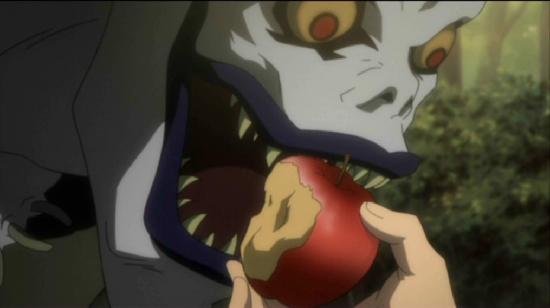
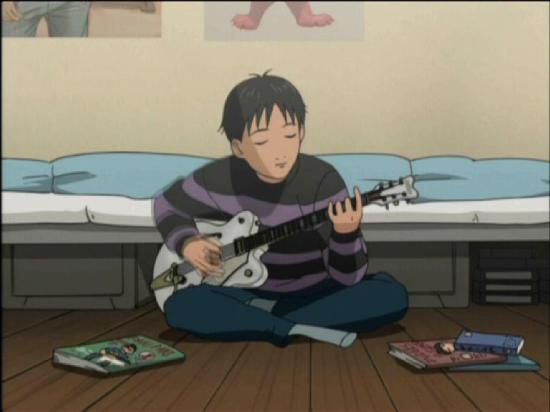
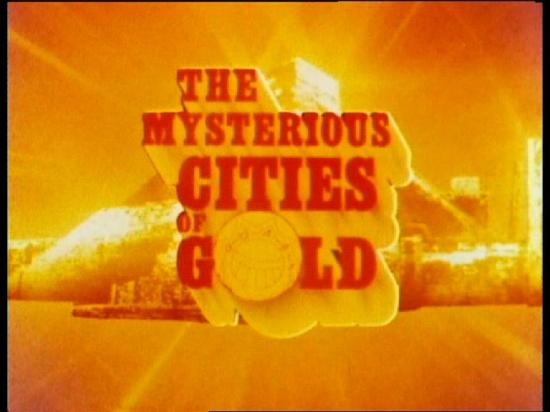
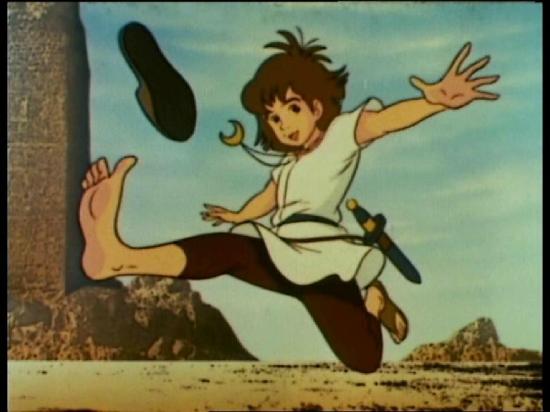
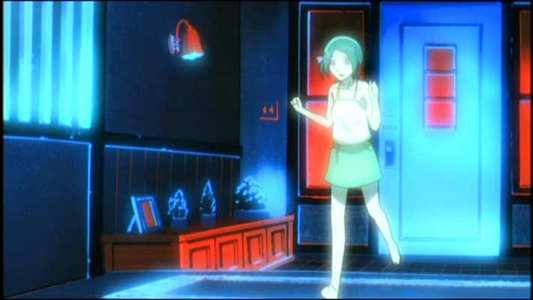
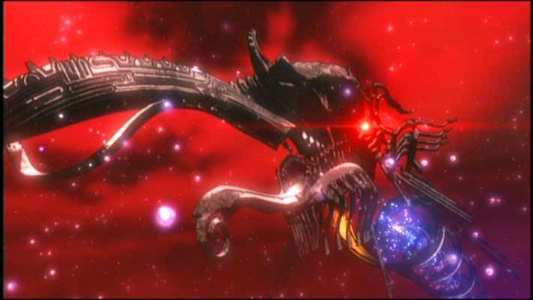
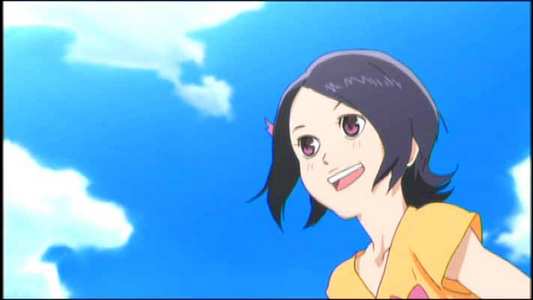
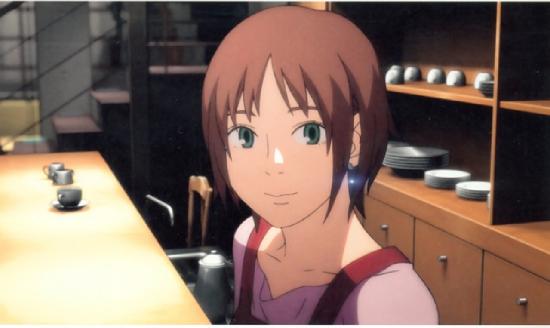
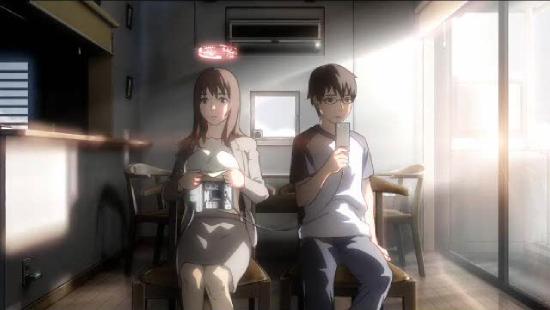
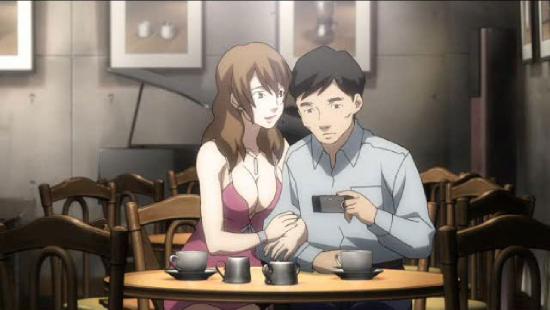
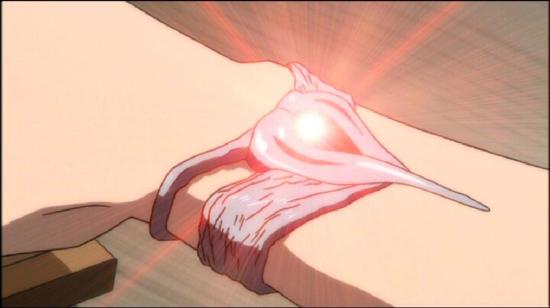
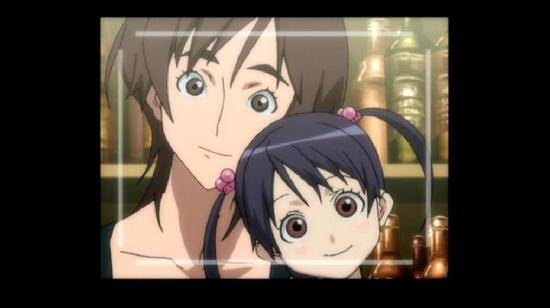
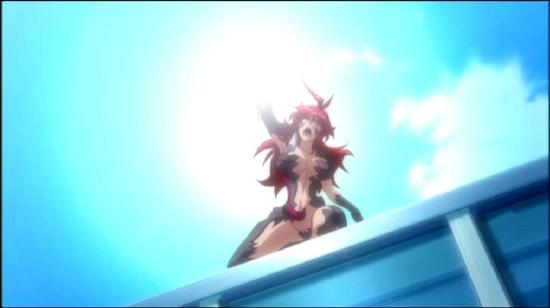
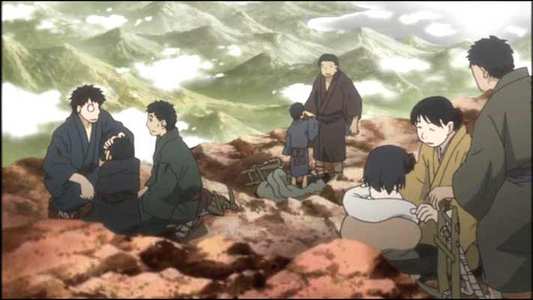
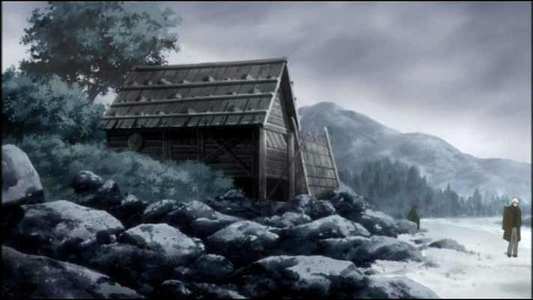
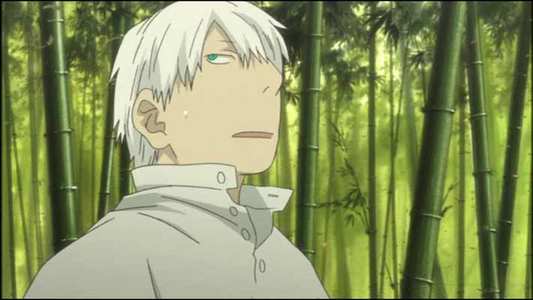

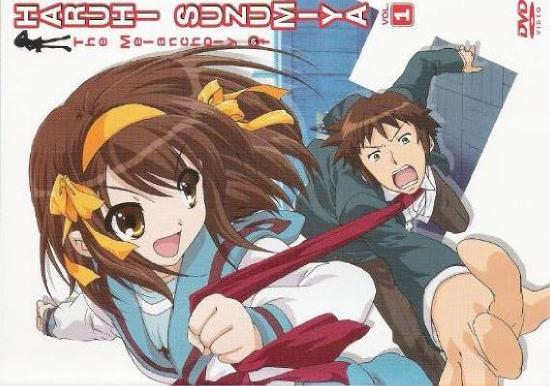
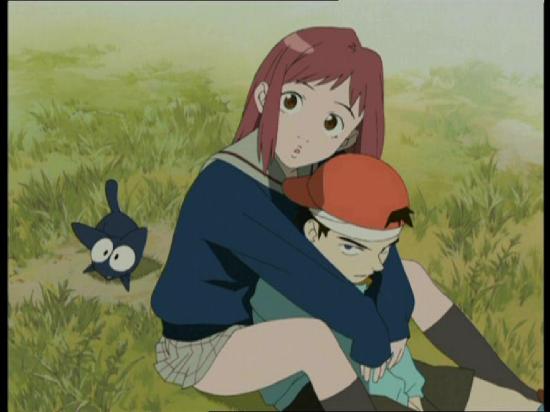
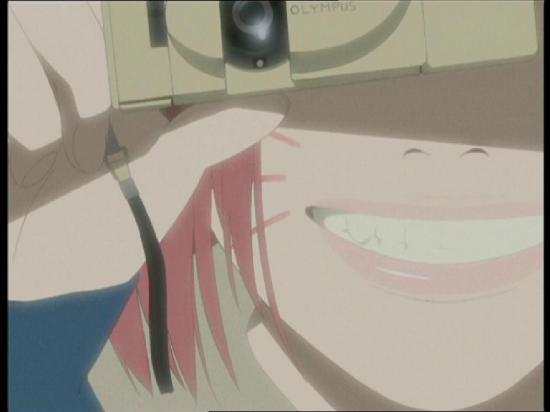
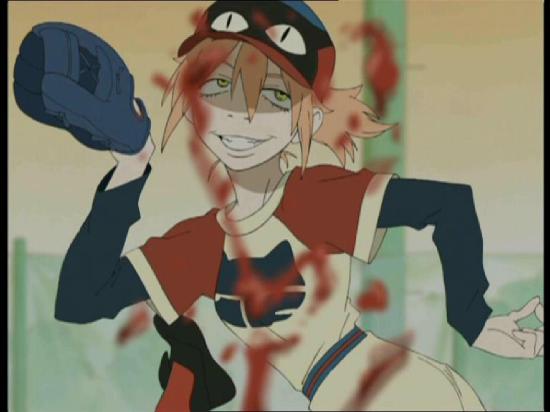
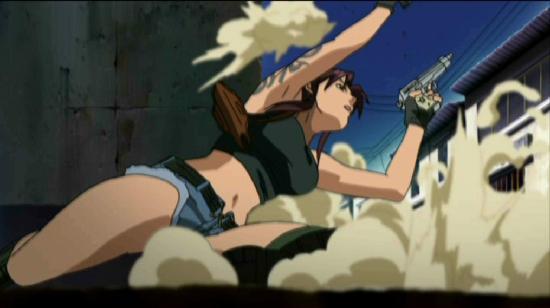
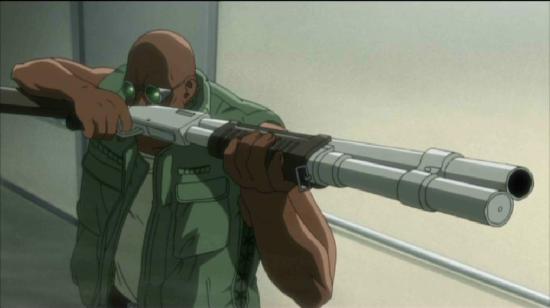
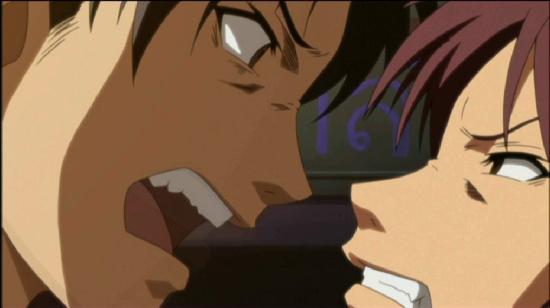
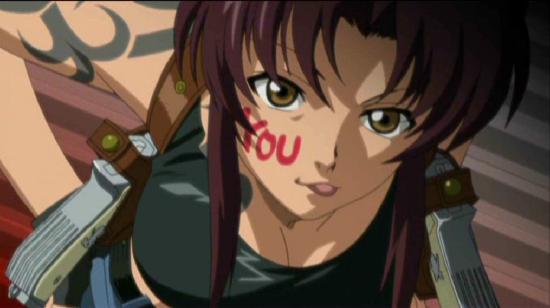

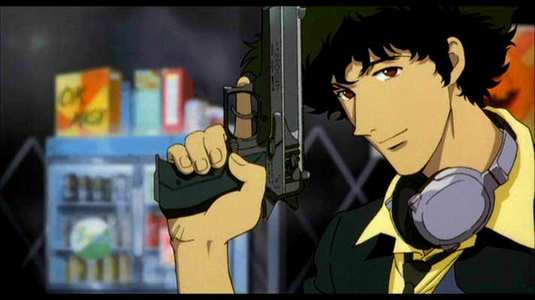
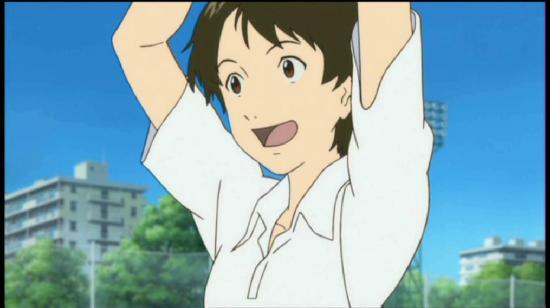
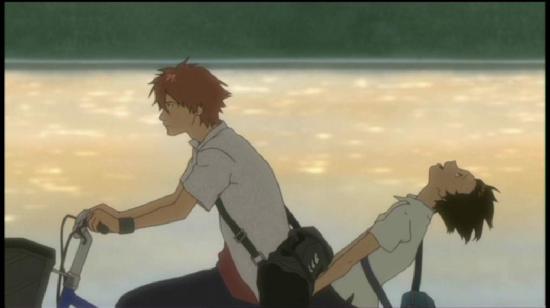
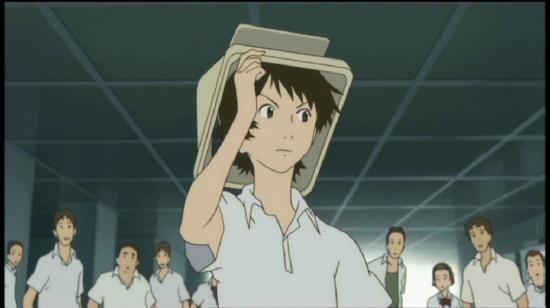
Your Opinions and Comments
Be the first to post a comment!